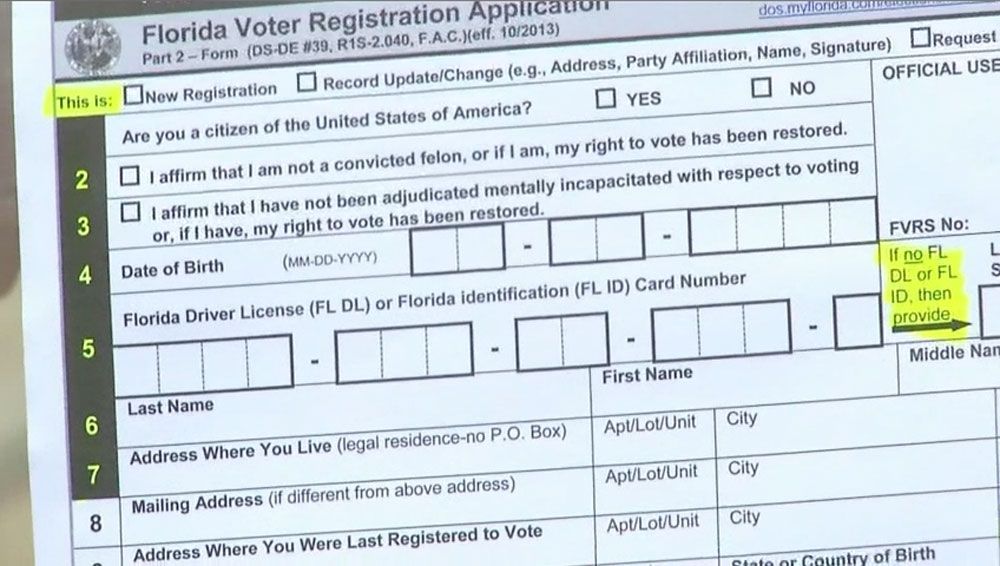ORLANDO, Fla. — For Desmond Meade, the man who helped lead the grassroots effort to get Florida Amendment 4 on the ballot, Tuesday will be an emotional day.
"I'm going to cry, I'm going to let you know ahead of time," said Meade, president of the Florida Rights Restoration Coalition. "I am going to be shedding some tears."
- Amendment 4 passed with 64.5 percent of the vote
- 1 million Florida felons will be eligible to register to vote
- State to suspect felon match until they receive directions from lawmakers
- RELATED: Full text of Amendment 4 | Making Sense of the Amendment
- IN FOCUS: See our episode on Implementing Amendment 4
On Tuesday, most convicted felons who have completed the terms of their sentences will be able to register to vote.
The amendment, which passed with 64.5 percent of the vote in November, affected some 1 million Floridians who before had to appeal to the Florida Cabinet (which acts as the state clemency board) to ask to have voting rights restored.
That's still the case for those convicted of murder or felony sex crimes.
Moving Forward Despite Questions
Concerns about implementing the amendment were raised almost immediately after passage. Gov.-elect Ron DeSantis made headlines when he agreed with some Florida legislatures that implementation of Amendment 4 should wait until the Florida Legislature can research the issue and possibly pass a bill.
Elections supervisors in Central Florida and Tampa Bay, at least, are moving forward with taking voter registration applications Tuesday from any convicted felons. There will be no change in the voter registration application, including the part that reads:
"I affirm that I am not a convicted felon, or if I am, my right to vote has been restored."
The Florida Dept. of State, for its part, says right now it will not be sending any felon matches to the county elections offices, which have the power to remove people from voter rolls.
"Given that Amendment 4 passed and pending any further direction from the Legislature, the Department is pausing on our process of sending any valid felon match files to Supervisors of Election, which typically initiates the process for a Supervisor to remove the voter from the rolls," said Sarah Revell with the agency.
The FRRC is also not expecting any issues, but Meade says they are not naive. The group has a hotline for people who need help registering to vote: 1-877-MY-VOTE-0 (698-6830).
"If there are any obstacles we might incur, maybe not even tomorrow, maybe weeks down the line, we do have a cadre of attorneys that stand at the ready to make sure that the constitutional right of every American is protected," Meade said.
"A Historic, A Solemn Moment"
The FRRC and other voting rights advocates are encouraging those registering to vote Tuesday to bring their families and treat the occasion as a celebration.
"We really want to highlight that concept of love, that's something we know we need more of, right, in our society," Meade said. "And we want the same people who voted for us out of love to be with us for this, and witness, what we think is a historic, a solemn moment."
Tuesday is the culmination of a years-long campaign for Meade and the FRRC. Treasurer Neil Volz said Meade spent years criss-crossing the country, building a coalition to make the passage of Amendment 4 possible in November.
“This was grassroots, this was organic," Volz said. "Desmond went all across the state for years. To some people, Amendment 4 became an issue months or weeks ago, and they read about it somewhere, but for those of us impacted by it, led by him, from Orlando, this has been something that’s taken a decade. This has been years and years of work."
Meade said FRRC is not going away. It will be working with public officials to help convicted felons move from prison to returning to society as a taxpaying citizen. Meade also said, as someone who knows what it's like to not have a voice in the community, that FRRC planned to continue to push to get more people voting.
"If nothing else, one of the things I’ve learned through this campaign is how valuable our vote is, how valuable our voice is," Meade said. "And my right to vote is something I know me, alongside my comrades and my colleagues, are going to be treasuring with the utmost respect when we walk into the supervisor of elections, to realize that so many people died so we could have that right to vote and to be able to exercise our voice. That’s a moment we will be embracing and taking with us moving forward."




